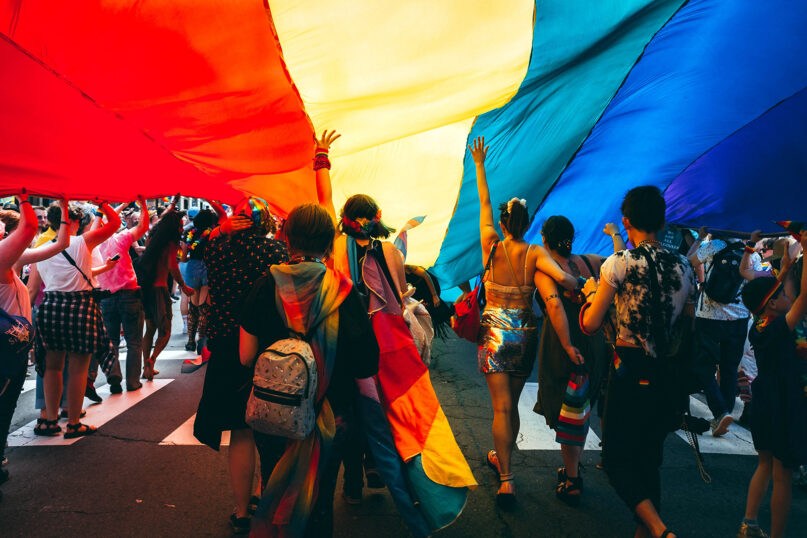(Interfaith America) — It was a little after 10 p.m. on a Monday night 40 years ago, when the Rev. Sue Anne Steffey Morrow, assistant dean of the chapel at Princeton University, heard voices from the café in the basement of Murray-Dodge Hall, home to the Office of Religious Life. Intrigued, she followed the voices downstairs to a dimly lit corner of the café, where a group of seven students looked at her with stunned expressions.
“They were gay students who met secretly after campus hours, and they had no name, which was symbolic to their invisibility on campus, and their fear of being called out,” said Morrow, now the school chaplain at The Lawrenceville School in New Jersey.
“They were so surprised when I introduced myself and asked how I could help them,” said Morrow. “Why would the dean of religious life possibly help them?”
RELATED: New app, believr, aims to create a ‘home for LGBTQ+ Christians’
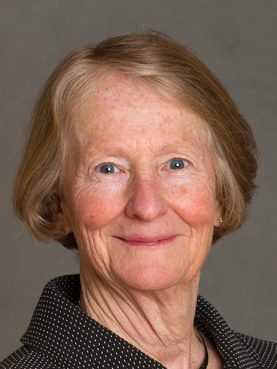
The Rev. Sue Anne Steffey Morrow. Photo courtesy of Lawrenceville School
That was 1981, the early dawn of the AIDS era. Over the next few years, Morrow worked closely with Princeton’s dean of student life, as well as an array of undergraduate and graduate students, faculty and staff to bring visibility to LGBT students on campus. She found them a space of their own and hired an intern from Princeton Theological Seminary to manage the space and host LGBT activities, a post that evolved into a full-time professional position in 2001, which became known as the LGBT student services coordinator.
In 1989, Morrow founded an annual “Gay Jeans Day,” on which students who were LGBT allies dressed in jeans to show their support and worked with students to foster activism aimed at getting the national and local government to help in the fight against AIDS.
In 1996, she hosted the first same-sex wedding at the University Chapel — an august neo-Gothic building at the center of campus that belies its modest name — much to the chagrin of conservative students, alumni and trustees.
“The core message of the Christian gospel is about loving each other and lifting each other up, and that seemed just part of who we were as Office of Religious Life,” said Morrow. “Creating equal, just, safe spaces, was then, and now, a part of who I am as a minister and pastor.”
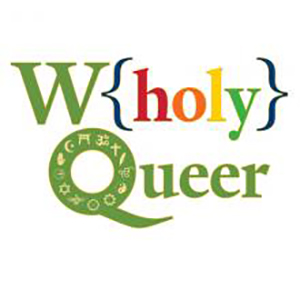
W{holy} Queer logo. Courtesy image
Forty years later, even as some religious colleges continue to seek religious exemption from anti-LGBTQ discrimination laws, it’s common for the office of religious life on American campuses to be a place where LGBTQ students continue to turn to for support.
At Yale University, the university chaplain’s office joins with the office of LGBTQ resources and the Joseph Slifka Center for Jewish Life to host W{holy} Queer, a monthly series where students meet to discuss the intersection between their queer and religious identities.
“Initiatives like these are happening on campuses across our country in different ways, different forms,” said Maytal Saltiel, associate university chaplain at Yale and president of the Association for Chaplaincy and Spiritual Life in Higher Education.
“More and more people are recognizing the need to fulfill these spaces for students who come from diverse faith and nonfaith backgrounds, gender identities and sexual orientations, because that’s what makes them a whole person,” Saltiel added.
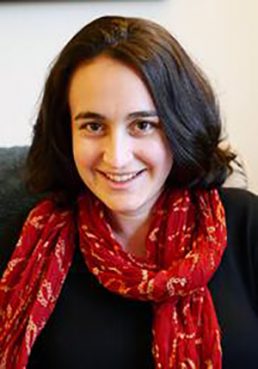
Maytal Saltiel. Photo via Yale
Saltiel believes it is important for chaplains to talk about all that matters to a person, including sexual orientation, because “they are matters of the heart and soul, and that’s what people come to chaplains to talk about.”
At some universities, however, efforts on behalf of LGBTQ students by offices of spiritual and religious life still meet with skepticism.
In 2018, the Center for Sexual and Gender Diversity at Duke University helped create an intersectional and interfaith space for students to discuss faith and sexuality, which grew out of a Presbyterian campus ministry student group known as Liberating the Faith, now known as the Duke Queer and Trans Christians Discussion Group.
“Honestly, it wasn’t so successful, and we ended up losing people from the group,” says Angel Collie, assistant director of the center, who was a facilitator of Liberating the Faith.
Collie said that students who came from historically conservative Christian backgrounds often found it difficult to be questioning their gender and sexuality while encountering people of diverse faiths for the first time. “It was almost a little too much for them,” Collie explained.
A member of the LGBTQ community himself, Collie said he understands the hesitancy, which he said comes from a genuine place of hurt that LGBTQ people can develop in conservative religious spaces.
RELATED: First ELCA transgender bishop, Megan Rohrer, hopes to ‘translate good news’ for the curious
“At times it is just as hard to be a person of faith within queer and trans communities as it is to be a queer trans person within some communities of faith,” said Collie. “The reality of the harm and the trauma caused in the past means that there is still a lot of work to be done in real concrete ways.” Putting out welcome signs or simply calling yourself inclusive is often not enough, he said; rather, people must be willing to undergo change by exploring both the sacred and queer identity.
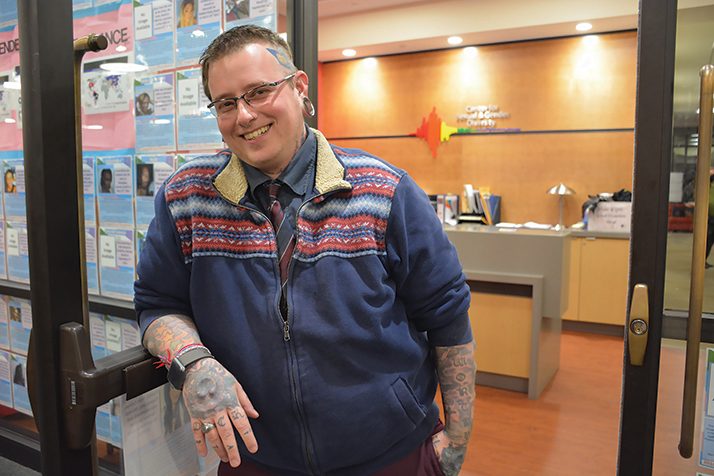
Angel Collie. Photo via Duke
Despite the tensions, Collie said faith communities on campus are making a lot of progress in becoming more inclusive and in accepting of the intersection of faith and sexuality.
At Duke, he said, they “have really been working to brand themselves as a welcoming and inclusive environment through the influence that they have.”
He has equal hopes that LGBTQ people can come to trust religion. Asked what he wanted LGBTQ people to know, Collie said: “I would say that there are spaces for you. There are people who have journeyed through similar paths. And you are not alone.”
This story was published in partnership with Interfaith America, a website of Interfaith Youth Core.
